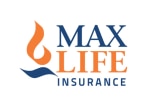
- Tax BenefitUp to 1,50,000**
- Claim SupportEveryday 10AM-7PM
- 45 Lacs+Happy Customers
*Standard Terms and Conditions Apply.
**Tax benefits are subject to changes in Income Tax Act.
GetTax Benefitsu/s 80C & 10(10D)
Best Investment Plans

It is a form of investment which gives you guaranteed returns mentioned while investing along with life coverage.

iSelect Guaranteed Future- iAchieve
You Invest
₹1 Lakh p.a.10 yearsYou GET Tax Free
₹29.1 Lakh20 years

Smart Wealth Plan
You Invest
₹1 Lakh p.a.10 yearsYou GET Tax Free
₹27.3 Lakh20 years

POS Goal Suraksha
You Invest
₹1 Lakh p.a.10 yearsYou GET Tax Free
₹27.1 Lakh20 years
What is Section 80D of the Income Tax Act of 1961?
Under Section 80D, any individual or Hindu undivided family can claim a tax deduction for health insurance premiums paid for both super top-up health insurance and critical illness health policies. Besides claiming deductions for self, the taxpayer can also enjoy tax benefits from the health insurance premium paid for the other members of the family.
Deductions Allowed Under Section 80D of the Income Tax Act, 1961
The deductions allowed under Section 80D of the Income Tax Act of 1961 are mentioned in the table below.
|
Expenses |
Maximum Exemption |
|||
|
Self, spouse, dependent children, and parents who are not above 60 years |
Self, spouse, dependent children, and parents above 60 years |
Self, spouse, and parents all are above 60 years |
||
|
Health insurance and preventive check-ups |
Self, spouse, and dependent children |
Rs. 25,000 |
Rs. 25,000 |
Rs. 50,000 |
|
Parents |
Rs. 50,000 |
Rs. 50,000 |
Rs. 50,000 |
|
|
Medical expenses |
Self, spouse, and dependent children |
Not Available |
Not Available |
Preventive healthcare check-ups for up to Rs. 50,000 |
|
Parents |
Not Available |
Preventive healthcare check-ups for up to Rs. 50,000 which is covered within a health insurance policy |
Preventive healthcare check-ups for parents up to Rs. 50,000 |
|
|
Total Limit |
- |
Rs. 50,000 |
Rs. 75,000 |
Rs. 1,00,000 |
Which Payments Are Covered Under Section 80D of the Income Tax Act, 1961?
Here are some of the payments for which individuals and HUF can claim tax exemption under Section 80D.
- Premium paid for health insurance via any mode except cash.
- Preventive check-up costs
- Treatment costs incurred due to the medical condition of senior citizens over 60 years who are not covered under any insurance policy.
- If any person wants to contribute to Central Government Health Scheme can claim for deduction.
Exclusions Under Section 80D of the Income Tax Act of 1961
Listed below are some of the exclusions under Section 80D of the Income Tax Act.
Premium Payment Mode:
The policyholder is not eligible to claim a tax deduction if the premium for their health insurance policy is paid in cash. In addition to this, an individual who is paying must only pay health insurance premiums to avail of the tax benefits.
Service Tax:
Taxpayers are not liable to enjoy any tax benefits on the service tax charges assessed on the payment of the premium. Therefore, a policyholder must pay service tax on health insurance premiums, and the payable amount must be equal to 14% of the premium.
Group Health Plans:
Group Health Insurance Policies are not eligible for tax deductions under Section 80D. However, the individual can claim tax under Section 80D if they have paid an extra premium to upgrade their plan.
Comparison Between Section 80D and 80C
Section 80C of the Income Tax Act provides high tax benefits to individuals. Any person can avail of tax deductions up to Rs. 1.5 lakh on various investments, including ULIPs, PPFs, LIC premiums, and more. However, under Section 80D, the health insurance premium paid for oneself, one family, parents, and preventive health check-up expenses are allowed as a tax deduction. A policyholder can claim a tax exemption on their health insurance up to Rs. 1 lakh.
FAQs
-
-
Can I claim a tax deduction for the health insurance premium paid towards the policy of my parents?
It is possible to claim a tax exemption on the health insurance premium on your parent's policy even if they are not dependent on you.
-
Can I avail of tax exemption for my Group Health Insurance Policy?
No, tax exemptions under group health insurance policies are not provided. However, you can claim a deduction under Section 80D if you are covered under an individual health plan along with a group insurance policy.
-
Are tax exemptions applicable for Hindu undivided families (HUFs)?
Hindu undivided families can claim tax deductions up to Rs. 25,000 per fiscal year for individuals or all family members under Section 80D of the Income Tax Act.
-
What investments are available under Section 80D?
Health insurance premiums and costs incurred from preventive healthcare checkups are eligible for claim deduction under Section 80D.






































